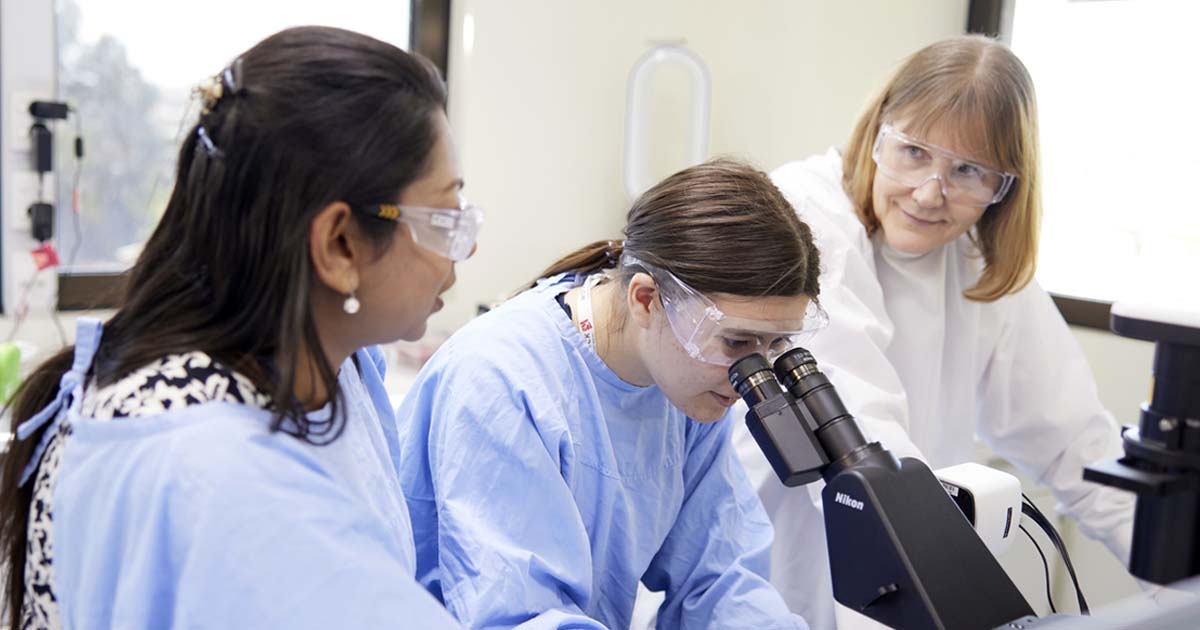The Woolcock Institute of Medical Research

New direction for lung cancer research
November is Lung Cancer Awareness Month, a time to reflect and address the urgent need for answers to this deadly cancer which claims more than 9,000 Australians every year, more than breast, ovarian and prostate cancer combined. This year, there is cause for hope with a recent study showing a potential link between a healthy gut microbiome and survival rates for patients undergoing chemotherapy.
It’s an important finding and one which the team at the Woolcock Centre for Lung Cancer Research is working every day to expand upon, hoping to break down barriers to using microbiome data at the clinic level and develop innovative new treatments that save lives.
Chemotherapy has an important role in lung cancer treatment, but a major problem is primary and acquired resistance – factors that 'fight against' cancer drugs. These can originate from the tumour itself or from the patient’s metabolic and immune system functions. In recent years, researchers have been working to gain an understanding of how imbalances in the gut microbiome can affect treatment. Gut microbiome imbalance can develop, for example, as a result of alcohol overuse or antibiotics.
Now, a study led by Cancer Institute NSW with expert input from researchers at the Woolcock has found an association between antibiotic use and impaired chemotherapy outcomes. The study analysed registry data from 25,936 cancer patients in NSW between 2013 and 2016. Patients were categorised based on the length of time between being prescribed antibiotics and starting systemic therapy (less than a month, 1-3 months, 3-6 months) and their outcomes compared with those who didn’t take antibiotics during the same six-month period. The antibiotic groups had shorter survival rates, and this was most significant for lung or breast cancer patients who were prescribed antibiotics up to three months prior to therapy.
It’s the first study to show such an adverse interaction between antibiotics and standard chemotherapy and a finding with far-reaching significance.
Further studies are needed to investigate how antibiotic exposure during chemotherapy affects patient survival and to find the causative link. The depletion of the healthy microbiome by antibiotics is considered a strong candidate as it is already known to impair the efficacy of some other types of cancer therapy, such as immune checkpoint inhibitors, also known as immunotherapy.
The good news is that we know that metabolites from beneficial microbes can interact with the immune system and increase the efficacy of cancer drugs and there is hope that co-treatments that restore a healthy microbiome after antibiotic exposure can reverse the adverse effect and improve survival rates.
At the Woolcock Centre for Lung Cancer Research we are conducting important work addressing the lack of information on how to do microbiome testing, how it will benefit the patient and how to correct any imbalance. We are also looking at how the interpretation of these tests can be tailored for cancer patients and hope that our work will result in microbiome testing becoming a routine procedure for all cancer patients.
Find out more
- About our Centre for Lung Cancer Research
- Support our lung cancer research with a tax-deductible donation










